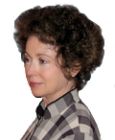Fear
How Do Americans Perceive One Another?
How has American history and dualism affected how we see one another?
Posted February 4, 2013
Our leaders have called on us to discuss American culture. To do this, we need to understand how we got where we are and how our journey has affected how we see the world and ourselves. February, named for Februa, the Roman festival of purification to dispel evil spirits and purge the city, is an apt time to begin this discussion.

As we begin a brief historical overview, comparisons with Canada are helpful. Why do Canadians have a culture so similar to ours, yet without our violence? According to scholars,Canadians have more respect for their national government because Britain granted Canada independence after the American Revolution. Canadians never had to fight a war with England, the motherland, in order to gain their independence. In addition, American ex-patriots, Loyalists, who fled to Canada after the American Revolution, feared the collapse of the national government. Neither did Canada have Indian wars like the U.S. Slavery in Canada was never gang labor like in the U.S. Canadian slaves were not seen as a threat and were educated. Slavery was also abolished in Canada without warfare. Canadians never had to break away from the mother country, they never fought wars against their Native American population, and their slavery, much more humane than ours, was also ended without warfare. As a result of these historical differences, Canadians did not develop an innate suspicion of their national government or fear their ethnic "others," unlike Americans who developed both a fear of national government and ethnic others early in our history.

To fully appreciate white Americans' fear of the ethnic other, one has only to consider that unlike Canadians, Americans were involved in some sort of armed conflict with Native Americans periodically from the time we arrived on America's shores in 1622 until 1973. The first slaves were brought into America in 1619. The Civil War,1861-65, increased resentment and suspicion of the national government not only in the South but also in Midwest and Western states which had slavery. Freed blacks increased fear of the ethnic "other," which led to suppression and segregation. Native Americans were only sublimated as "noble savages" once they had been totally subjugated and their culture almost annihilated. By the end of the 19th century, Americans had a perception of different ethnicities as separate, inferior, and dangerous unless subjugated.
With the beginning of the 20th century and WWI, America was fighting against a foreign "other"—the imperialists, a conflict that helped unite the American psyche around the Doughboy, who became a figure of mythic proportions restoring peace and stability in an unstable world divided into the good and the bad. The coalescing American national psyche crashed into the Depression, Prohibition, the Mafia, gang warfare and "Tommy" guns—i.e. military machine guns—on the streets. The mythical romanticism of the cowboy and the handgun faced that of the gangster and his military assault weapon. The criminal "other" was no longer a lone wolf or a small group of outlaws but a veritable social group made-up of gangs and families with tentacles that ensnared citizens by means of fear. Skepticism about "the other," which had been primarily based on ethnicity, regionalism, and concerns about the national government, now became local and personal because of national crime run by crime syndicates. Your neighbor's possible criminality posed a personal risk to you, your business, and your family. Fear of "the other" took on a new personal aspect—i.e. fear and suspicion of people who were white Americans. "The other" was no longer ethnically different, but fit the profile of the majority of Americans. "The other" could be "us."
With WWII, the possibility of coalescing the American national psyche was once again foiled by "the Red Scare." Communism was not primarily a foreign threat like the fascism of WWII but an insidious philosophy that threatened Americans on the local level just like the crime wave after WWI. In the 1950s, McCarthy convinced many Americans that the country was in danger of falling through subversion: the danger, once again, was someone who looked just like "us," just as in the era of Prohibition and syndicated crime. Fear of "commies" sent America lurching towards paranoia. The 1960s was another period of cynicism about the national government, but with the Civil Rights' movement, American Caucasians' sense of "the other" became more inclusive while skepticism about the U.S. government persisted with the assassinations of President Kennedy, his brother, and Martin Luther King; and, finally, with the war in Vietnam. Skepticism about the national government continued and fear of communists made Americans suspicious of how people thought. Fear and suspicion of "the other" who looks just like "us" was becoming more complex and part of the fabric of American society.
Like in the Prohibition, the war on drugs brought gang warfare and military grade weaponry back to the streets of America, but poverty and race were new elements in the street warfare, which has resulted in the incarceration of 20% of Black American males and resurrected the fear of the Black man to an intensity not seen since pre- and post Civil War days. In 1978, Jerry Falwell founded the Moral Majority, an unfortunate name that suggested that those who didn't agree with him were not moral and, therefore, had no opinions that merited consideration. Once again, "the other" was anybody who looked like the majority of Americans; but this time it was not just a question of political beliefs, it was a question of religious beliefs—the very core of how Americans defined themselves as a Christian nation. White Americans grew to despise other white Americans if they did not share their religious beliefs. In the 1980s, Lee Atwater made this dichotomy an essential part of America's political strategy: Atwater explained, "You had to make the case that the other guy, the other candidate, is a bad guy." Dying with a brain timor, Atwater apologized for his political tactics, but it was too late. Others had already taken up his strategy. American politics has gone steadily downhill ever since because of this "good/evil" divide: you can't compromise with evil.
On 9/11, 2001 another "other" appeared—Muslim religious fundamentalists. This time, the coalescing American psyche crashed into war fatigue, a deep recession, fear of yet another ethnic group, and drug-gang warfare on the streets, eerily reminiscent of American history post WWI. In 2009, as a result of immigration and frustration with wars in Iraq and Afghanistan, America elected its first black president. Sadly, yet another opportunity for coalescing the American national psyche failed because enough politicians decided against compromise, the very basis of a functioning democratic society, rendering the 112th Congress one of the least productive and most partisan legislative congresses in all of American history. America has reached the point that the opinion of "the other" is not even to be acknowledged.
We now see how Americans have gradually been pitted against one another, but why do these divisive tactics continue to work? They work because of fear and because some politicians and religious leaders make a name for themselves and a lot of money by stoking fear and hatred. Divisive tactics also work because we have become so narcissistic that we feel that what we want is more important than what anybody else wants: we are more important than "the other." Therefore, you hear people say, "I'm not giving up my guns," which has not even been asked of them and which simply indicates," I'm not going to compromise on anything"; or "compromise is a slippery slope" as opposed to a solution; or you hear Tea Party members chanting, "Cut it or shut it!" —i.e., no compromise. We have actually come to the point that there are Americans who would rather see the system fail than compromise. We are so polarized we've lost respect for others simply because they don't think the same way we do.
So what is the solution? Our increasing ethnic diversity holds the key to saving the country. With increasing ethnic diversity, "the other" will be replaced by "the others," and our current dualism will be replaced with the complexity a democracy needs to function. In the meantime, we need to realize the dangers of polarized, dualistic thinking that reduces choices to "either or" in a world that requires complexity, adaptability, and compromise. As Benjamin Franklin said, "We must all hang together, or assuredly, we shall all hang separately." Americans need to rise above our history of dehumanization and disrespect of "the other," which now even includes anybody who doesn't share our religious or political opinions. If we accorded one another respect—the recognition of our common humanity—we wouldn't feel the need to walk around with a gun, a symbol of the owner's fear and alienation. Think about it. Over one million Americans killed with guns since 1960. One kid shot dead in this country every three hours. No other developed nation has such a lamentable record. We can do better. It's time to recognize we are all human brings with the same hopes and dreams and stop believing the people who make money by keeping us afraid and divided. How can we possibly change all this? The solution is simple, but not easy. Just realize everybody you see is you in another guise, and treat them accordingly. If you can't get that far, just treat everybody you meet the way you would want to be treated if you were in their shoes. If you persevere, you'll be surprised to see how quickly the world becomes a better place.


